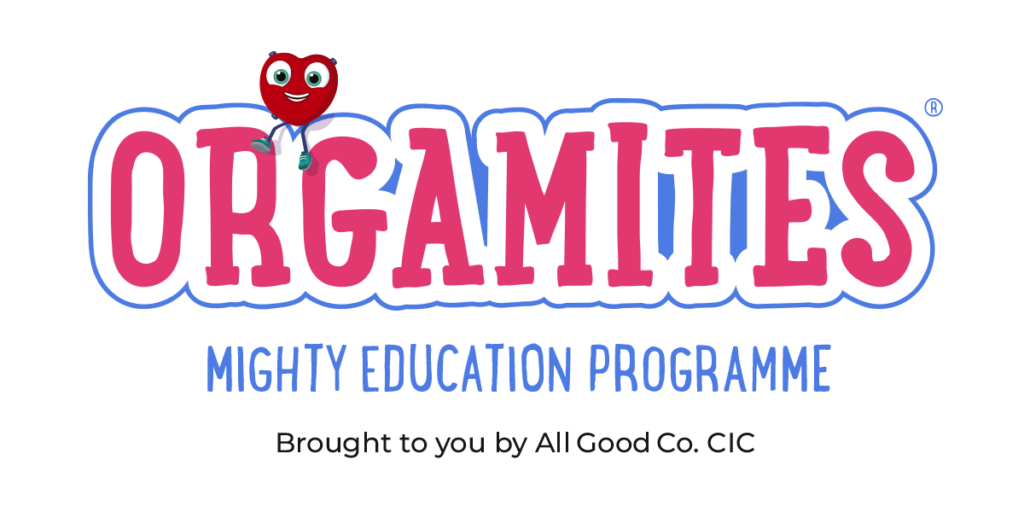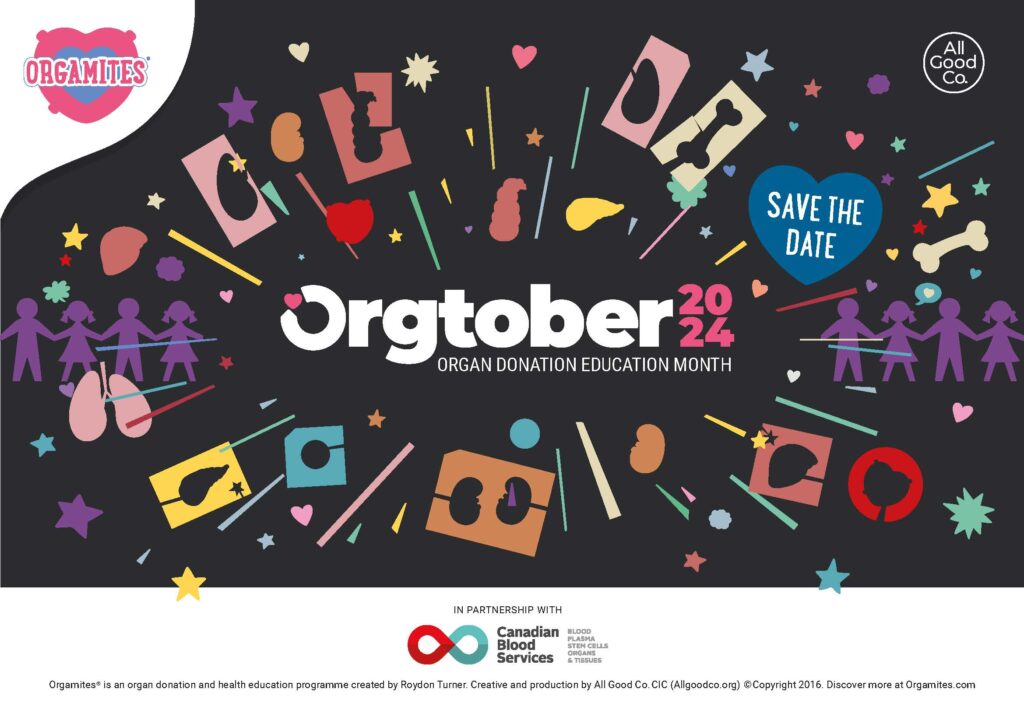ORGTOBER TO LAUNCH IN CANADA IN 2024!
Thanks to our partners Canadian Blood Services, Canada is set to join the UK by introducing ‘Orgtober’ to the school calendar in 2024.
Orgtober, formerly known as October, will be sweeping into primary school classrooms and calendars across the country. While the normal education curriculum will not be affected, this supplementary campaign seeks to breathe new life into organ donation education by: starting earlier, getting more families talking, celebrating the fundamental values that underpin organ donation (kindness, compassion and inclusivity), and having loads of fun while doing all of this!
Initiated by the Orgamites, the only global organ donation awareness programme of its kind, Orgtober’s mission is this: to make kids everywhere more aware of their amazing organs, then get more families talking about organ donation, and thereby, increase the amount of organs donors in the long term which will ultimately save countless more lives.
Through a range of free, fun, and interactive educational toolkits and other resources that kids can take home, students learn all about their organs, as well as why and how to take better care of their bodies, and why and how kindness really counts.
“Having already found its way into thousands of students’ classrooms in Canada, Greece and the UK, with plans to launch across the USA and Australia later this year, Orgtober in Canada will help lead the way. Together, we hope to raise much-needed awareness that will ultimately raise the numbers of lives saves – both here in the UK and globally.” says Orgamites founder, Roydon Turner.
Below, Roydon answers some of the big questions that might arise:
Why is this a critical issue to highlight?
“Because too many people (especially children) die waiting for an organ. Despite the opt-in or opt-out laws, the number of families agreeing to organ donation has dipped for the first time in 8 years. The primary reason given for declining donations is families not knowing what their loved one would have wanted. One conversation can change all that. But raising these kinds of conversations is easier said than done – that’s where Orgtober comes in!”
Why talk to kids?
“Because children tend to wait two and a half times longer than adults for organs they need – and many die waiting. In the UK, of those on waiting lists presently, over 200 are children and babies with various life-threatening conditions whose only chance of survival is an organ transplant. Though the law around organ donation has changed, families will still always be consulted. This means that child organ donations are reliant on parents at their most anguished moments, being able to rationally process a request for their child’s organs. This is the worst possible time to first be confronted with the option of organ donation.”
As one parent shares, “The first time I contemplated child organ donation was when the Doctor came into the room where I was holding her. To be asked at that time for a donation was extremely traumatic and whilst I understand the need to ask for medical purposes, it was the wrong time to be my first contemplation of the topic. From that experience, I fully appreciate why parents say no. The moment of loss being the first time to contemplate child organ donation is simply too difficult. That moment would be easier and would see higher rates of consent if the notion of “what would we do if…” was already a seed of thought in the minds of parents. Had I considered organ donation prior, that moment would have been far easier to say yes to.”
Roydon’s final words:
“Quite simply, starting conversations sooner, saves lives. By highlighting the importance of organ donation, and by encouraging more people to consider registering as organ donors, we hope to create a worldwide movement that will impact generations to come and save countless lives too.”
More about the Orgamites:
The Orgamites education programme in primary schools has been positively received by both children and teachers in all three countries it has been implemented in. Our feedback has shown that after receiving organ donation education at school, students report a significant increase in family conversations at home around organ transplants and donations, their health and the environment. Furthermore, teachers who were initially hesitant about teaching younger children about organ donation have found the programme to be fun, enlightening, and a valuable addition to the curriculum.

